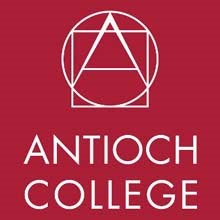Two events at Nonstop
1—Screening of Burma VJ (2009) by Anders Ostergaard
Thursday, June 2 @ 7:00 PM
2—Report from Keiko Sei, media journalist (from Bangkok, via skype),
Saturday, June 4 @ 1:00 PM
Both events at Nonstop Institute
305 N. Walnut St., Yellow Springs
donation
Burma VJ (2009), an award-winning documentary by Anders Ostergaard, chronicles young Burmese mediamakers who risk their lives and imprisonment to document political actions, such as the street demonstrations of 2007 where monks and citizens marched in Rangoon/Yangon and elsewhere to resist the Burmese junta. These young video journalists smuggle their tapes out of the country, making them available to international news media and the Burmese diaspora, who re-broadcast their reporting via satellite. This documentary offers insight into high-risk journalism, dissidence in a police state, and international networking, while at the same time providing a thorough documentation of the historical and dramatic days of September 2007. Among its many awards, Burma VJ received the Berlin Film Festival’s International Human Rights Award and Sundance’s World Cinema Documentary Editing Award.
Keiko Sei is a media journalist, curator, teacher and advocate for independent media who lives in Bangkok, Thailand. She is currently working with a support team for a Thai internet provider who is being prosecuted and faces decades in prison for anti-government statements made by a citizen blogger, a case that has important implications for international policies regarding freedom of speech on the internet. In Chiang Mai, on the border of Thailand and Burma, Sei has trained immigrant groups to produce media to focus international attention on human rights abuses in this region. In a report about this work she observed, “In many ways the Thai-Burma border is an experimental lab where these people who have completely different modes of culture must invent a way to act together.” Her work with diverse regional groups has respected “old” and existing regional communication practices while recognizing the strategic benefits of inventing or grafting “new” media forms in response to specific political and cultural conditions.
Keiko Sei will speak to the Yellow Springs audience live via skype about her work and contemporary media politics in Thailand, Burma, and other countries in SE Asia. Short projects to be screened in conjunction with her talk include a report by the Karen Back Pack Health Worker Team, who carry medicines and surgical supplies into a contested and heavily mined border region. These media and health workers trek for weeks, do health education and health care in remote villages, and use video cameras to document their work and the testimonies of human rights abuses by witnesses and victims. Also, Sei and Yellow Springs artist Migiwa Orimo will dialogue on their current respective but shared projects—research into independent and citizen journalists in Japan following the ongoing nuclear crisis precipitated by the March earthquake and tsunami.
Keiko Sei’s work with media art over the last two decades has been primarily focused on Eastern Europe and South East Asia. After coordinating independent international video projects in Tokyo, Sei moved to Budapest in 1988, and later Prague, where she collaborated on a series of cultural symposia and formative media art exhibitions in the region including The Media Are With Us!— The Role of Television in the Romanian Revolution (Budapest, 1990) and POLITIK-UM/new Engagement (Prague, 2002). During this period she also chaired the video studio at the Technical University in Brno, Czech Republic (1998-2001). Also over the last decade she was invited to work with independent media in the Caucasus region and Kazakhstan by Soros Foundation initiatives in new technologies. She has written for publications world wide including Art & Text (Australia), Impulse (Canada), Umelec/Artist (Czech Republic), Literarny Noviny/Literature Journal (Czech Republic), springerin (Austria), and currently writes for Thai and Burmese exile media. Sei was South East Asia regional curator for the Documenta 12 International Magazines Project (2008).
Chris Hill’s interview with Keiko Sei was published in The Aesthetics of Risk (ed. John Welchman) in 2008, and portions will be posted at Nonstop’s website: nonstopinstitute.org.
Wednesday, May 25, 2011
Subscribe to:
Post Comments (Atom)








No comments:
Post a Comment